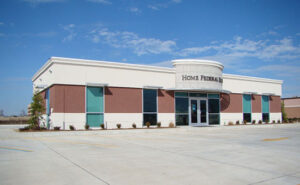In today’s rapidly evolving financial landscape, banks face numerous challenges in meeting the growing demands of their customers while optimizing operational efficiency. One solution that has gained significant traction in recent years is the utilization of modular building companies for constructing or renovating banking facilities. These companies offer a versatile, efficient, and innovative approach that aligns perfectly with the needs of the banking industry. This article explores the myriad benefits of integrating modular construction into the banking sector and why banks should seriously consider partnering with modular building companies.
Speed and Efficiency
Traditional construction methods often entail lengthy timelines due to weather constraints, material delays, and on-site issues. However, modular building companies revolutionize this process by constructing components off-site in a controlled environment. These modules are then assembled on-site, significantly reducing construction time. For banks looking to open new branches or renovate existing ones swiftly, modular construction offers a competitive advantage by slashing project durations by up to 50%.
Cost-effectiveness
Cost is a critical factor for banks when considering new construction or renovations. Modular building companies streamline expenses through economies of scale, reduced material waste, and optimized labor utilization. Additionally, the controlled environment in which modules are fabricated minimizes the risk of costly rework due to weather-related damages, ensuring predictable project costs.
Flexibility and Customization
Modular construction provides banks with a high degree of flexibility in design and customization. Whether it’s a new branch, ATM kiosk, or specialized banking space, modular building companies offer tailored solutions to meet specific requirements. These modules can be easily reconfigured or expanded, allowing banks to adapt to changing needs swiftly without disrupting operations.
Sustainability and Environmental Benefits
Environmental sustainability is a growing concern across industries, including banking. Modular construction minimizes waste generation and energy consumption by optimizing material usage and adhering to stringent environmental standards. Banks can enhance their corporate social responsibility (CSR) initiatives by opting for eco-friendly modular building solutions, reducing their carbon footprint in the process.
Enhanced Quality Control
Quality control is paramount in banking facilities to ensure a safe and secure environment for both customers and employees. Modular building companies adhere to rigorous quality standards during the manufacturing process. With standardized construction techniques and strict quality checks, banks can be assured of consistent, high-quality structures that meet regulatory requirements.
Reduced Disruption and Downtime
Operational disruptions during construction can adversely impact a bank’s services and customer experience. Modular construction minimizes on-site disturbances, as the majority of the work is completed off-site. This approach significantly reduces downtime for existing branches undergoing renovation, allowing banks to maintain seamless operations throughout the construction phase.
Technological Integration
As the banking industry embraces technological advancements, modular building companies excel in integrating cutting-edge technologies into their constructions. From incorporating smart banking systems to accommodating advanced security measures, modular buildings are designed to support the latest technological innovations, providing banks with a competitive edge in delivering modern and efficient services.
Conclusion
In conclusion, the integration of modular building companies into the banking sector represents a transformative shift that offers unparalleled advantages. From expedited construction timelines and cost savings to flexibility, sustainability, and enhanced quality control, the benefits are undeniable. By partnering with modular building companies, banks can not only optimize their infrastructure development but also reinforce their commitment to innovation, efficiency, and customer-centricity. As the banking landscape continues to evolve, embracing modular construction is a strategic step towards staying ahead in an increasingly competitive industry.


